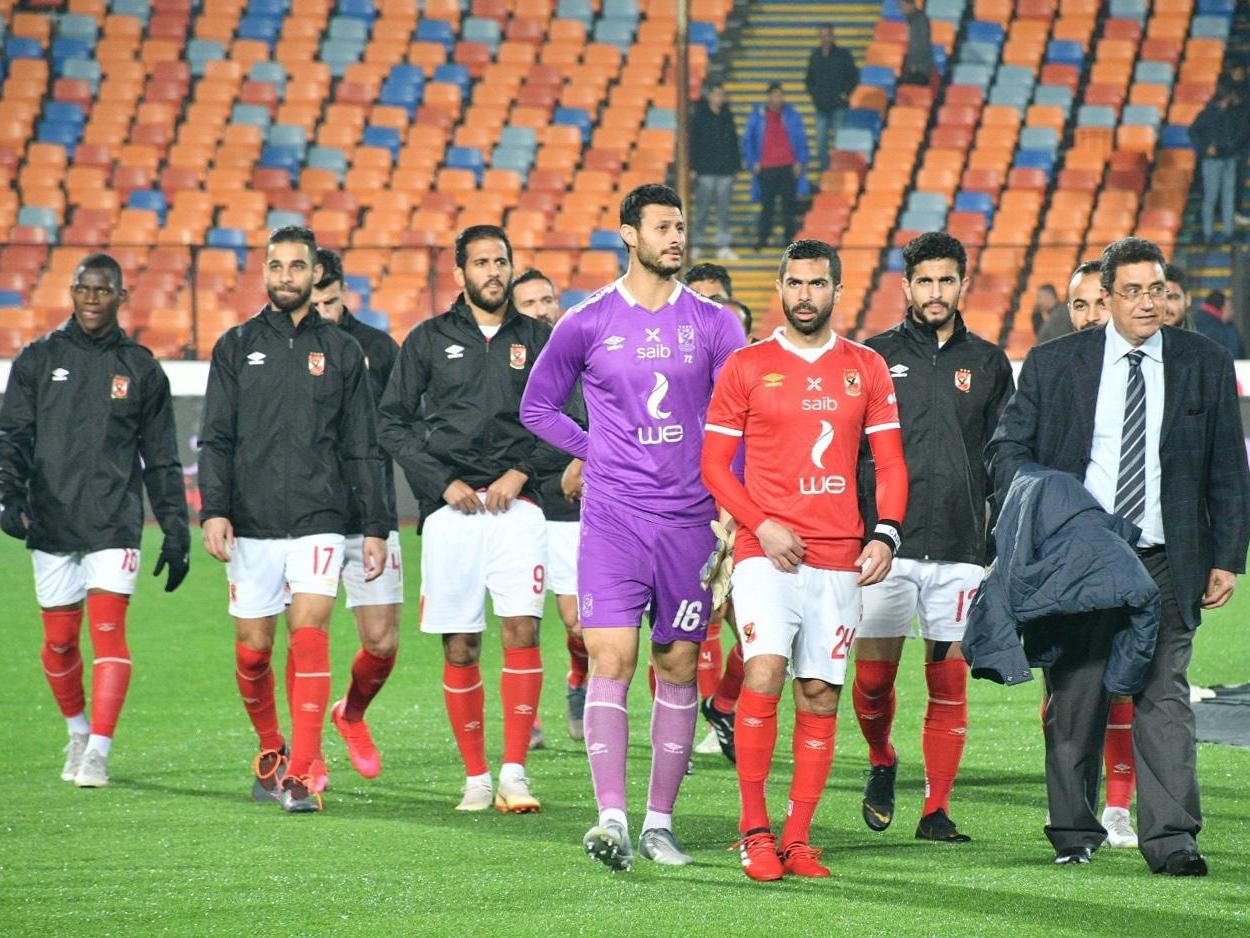Zamalek's no-show in match against rival club Al-Ahly reveals how rotten Egyptian football has become
Football sectarianism is entrenched in Egypt and the division is deeply rooted in the character of fans. And every day, they are itching for a confrontation


Imagine all football games in the Premier League are played with no fans allowed in the stadium. Wembley, Old Trafford, Emirates, and Etihad are suddenly deserted from all but the players and managers. What would English football look like? How would the sponsors, sports channels, clubs and the advertising business make their profits? And how on earth would people enjoy watching these games on the weekend?
You would think the sky would fall and the whole footballing world would collapse? Wrong. Let me introduce you again to the Egyptian model.
In Egypt, the games are being played without any spectators at all since 2012 (except for their intermittent appearance in big championships that Egypt has hosted).
However, football kept its momentum and flourished. The prescription is simple and easy to understand: fanaticism, fanaticism and more fanaticism.
Al-Ahly and Zamalek are the most prominent football rivals in Egypt, and probably the whole Middle East. The clubs enjoy sweeping popularity across the region, and when they lock their horns, the entire country gets on its toes.
In the Egyptian Super Cup game, played in Abu Dhabi on Thursday, antagonism prevailed at all levels. Some players wrestled each other on the pitch. The Zamalek captain responded to boos and chants from the fans by making offensive, obscene gestures, and the media poured more fuel on the fire. After the match, the two clubs didn’t waste time and waged a war of statements against each other. The fans, including family members and friends, scuffled on social media in a national row over the game that ended with Zamalek winning the penalty shoot-outs and the cup. Egypt went crazy.
In another game also against Al-Ahly, scheduled to take place on Monday, Zamalek players didn’t show up on time. The Egyptian federation confirmed it would impose severe sanctions on the club. Zamalek’s off-the-lead president said he feared the event would turn into a bloody confrontation, not a football match.
Egyptian football doesn’t have strong foundations and is nowhere near consolidating to become a reliable industry. It is instead a parasite system run by an oligarch-like network of sponsorship and advertising empire, all serving a gigantic media machine. The media is owned, in significant part, by the government and multi-millionaires linked to president Abdelfattah al-Sisi’s regime.
And while the UK follows a system which allows shared viewership of football to set the relationship between the TV big guns, Egyptian media is engaged in a cutthroat competition for viewers. The result is an antagonistic partisan and endless civil war between the media patrons and their hot-headed Ahly and Zamalek former players racing for likes and shares on social media by appeasing their old fans.
If the UK has one Match of the Day show, Egypt has multiple terrible and antagonistic versions of it.
But this system is about to take football in Egypt away from consensual sports rules and its moral obligations in a very violent way. If fellow Iraqis, Syrians, Lebanese and Yemenis are drawing their politics on sectarian lines, Al-Ahly and Zamalek are the real Sunna and Shia of Egypt. “Football sectarianism” is entrenched and the division is deeply rooted in the character of the fans on both sides. And every day, they are itching for a confrontation.
In February 2012, More than 70 people were killed, and at least 1,000 injured in violence at the Port Said stadium near the Suez Canal, following the home side Al-Masry’s victory over Al-Ahly. Since then, fans were banned from attending football games at the stadiums. But this is not the whole picture. Politics is always in the details.
Since the 2011 uprising, football stadiums had been used as launching pads for political slogans and critics, mostly led by the Ultras, an organised group of young fans who played a role in the Tahrir Square protests. Now, Egyptian authorities know that Sisi lacks a dearth of popularity among Egyptian youth and they seem adamant not to give them a free live platform to attack his policies, especially the complete wipe-out of freedom of speech and the arbitrary rounding up of dissidents.
The authorities also make the neverending, contentious debates about football and culture central to its well-known policy of distraction away from politics, a policy that was boosted during the reign of former president Hosni Mubarak, ousted by the 2011 popular uprising and who died yesterday, aged 91.
But, whoever is agitating this football hatred to appease Sisi or achieve political ends, is most certainly playing with fire.
Another massacre is looming, and it could happen at any moment. Besides showing that the government is weak and out of its depth by maintaining the ban on fans at football stadiums for years, fuelling sports fanaticism and hatred by the government, the media or officials on both sides is a slippery slope towards unrest in Egypt.
Join our commenting forum
Join thought-provoking conversations, follow other Independent readers and see their replies
0Comments